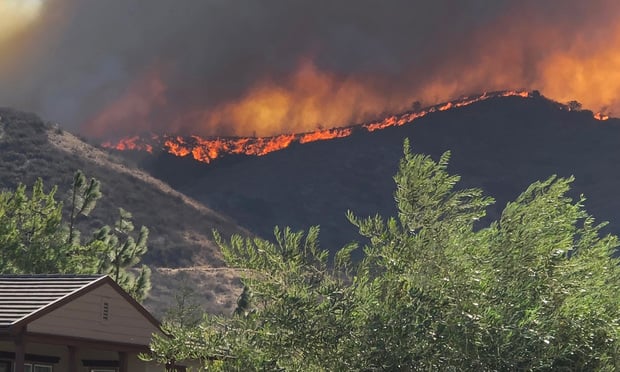Mississippi officials are discussing a lawsuit aimed at delaying the onset of flood insurance premium rate hikes before bills start going out Oct. 1.
State insurance commissioner Mike Chaney told a state Legislature Budget Committee hearing Monday that he and the state Attorney General's “have been having discussions about filing the lawsuit.” Chaney said the suit, if filed, would be in Federal Court in a Gulf Coast state.
The lawsuit would seek an injunction based on allegation of illegal taking. Chaney said at the hearing that under the Biggert-Waters Act, rates for some homeowners will increase over 1500 percent for some Mississippi residents.
Mississippi was remapped in 2009 after Katrina, and Base Flood Elevations changed. “Many homes were rebuilt after Katrina to the then-existing flood elevations and are caught in new elevation requirements and new zones,” Chaney testified.
Chaney told the panel he and the attorney general are considering action because he does not think Congress will address the issue in a timely manner.
At several meetings, including comments to Gulf Coast insurance commissioners last Saturday, Chaney said, “This BW-12 act could end up generating another savings and loan crisis, like the eighties.”
A hearing on the issue will be held by the Senate Banking Committee Wednesday. Industry lobbyists say the House Financial Services Committee will hold a similar hearing Oct. 9.
Also Monday, Jackson County Mississippi supervisors passed a resolution voicing support for federal legislation that would delay the rate hikes. However, there appears to be little for legislation, the legislation that would be considered would only stop limited rate hikes scheduled to go into effect next year, and not the major rate hikes for which Write-Your-Own companies will start sending out bills starting Oct. 1.
At the meeting, the supervisors said that the rate hikes, ranging from hundreds of dollars a year to thousands of dollars a year on homes in flood-prone areas could cause people in middle- to low-income brackets to walk away from their homes. Moreover, there is a strong possibility that Congress will not act on legislation funding the government for the new fiscal year starting Oct. 1, thereby generating a government shutdown.
Earlier, GNO, Inc., the former Greater New Orleans Committee, called the rate hikes “harmful” in a new report. The group said a confluence of factors, including the rate hikes, incomplete and inaccurate FEMA maps, and questionable actuarial calculations will lead to premium increases of up to 3,000 percent and more – for policyholders who have built to code and never flooded.
The report said, “To be clear, GNO, Inc. is committed to a financially solvent NFIP and premiums that reflect true risk,” but the committe does “not support policies that create moral hazard by incentivizing building in harm's way, nor do we support subsidization of severe repetitive loss properties.
“But there are hundreds of thousands of Americans who have done nothing wrong, have built exactly as the federal government has told them – and who now could have their lives destroyed,” the GNO said.
The report said that, “If unchecked, the negative consequences are broad: owners will lose everything, values of unsellable properties will plummet, bank mortgages will go into default, local tax bases will erode, and economies will be eviscerated.”
The report said GNO is “already seeing this negative spiral in St. Charles parish, where values on some homes have been lowered 30% by the assessor – an unprecedented action. Ultimately, this 'cascade effect' will undermine NFIP itself, as policyholders will leave an unaffordable program.”
Meanwhile, SmarterSafer.org released a letter asking Congress to resist delaying the rate hikes.
“NFIP remains almost $28 billion in debt to U.S. taxpayers as a result of years of heavily subsidized premiums regardless of need,” the organization writes, adding detail of what is says are disproportionate benefits to the wealthy. “Forty-three percent of subsidized properties are located in counties that have average home values in the top 10 percent of the country.”
Want to continue reading?
Become a Free PropertyCasualty360 Digital Reader
Your access to unlimited PropertyCasualty360 content isn’t changing.
Once you are an ALM digital member, you’ll receive:
- Breaking insurance news and analysis, on-site and via our newsletters and custom alerts
- Weekly Insurance Speak podcast featuring exclusive interviews with industry leaders
- Educational webcasts, white papers, and ebooks from industry thought leaders
- Critical converage of the employee benefits and financial advisory markets on our other ALM sites, BenefitsPRO and ThinkAdvisor
Already have an account? Sign In Now
© 2025 ALM Global, LLC, All Rights Reserved. Request academic re-use from www.copyright.com. All other uses, submit a request to [email protected]. For more information visit Asset & Logo Licensing.








